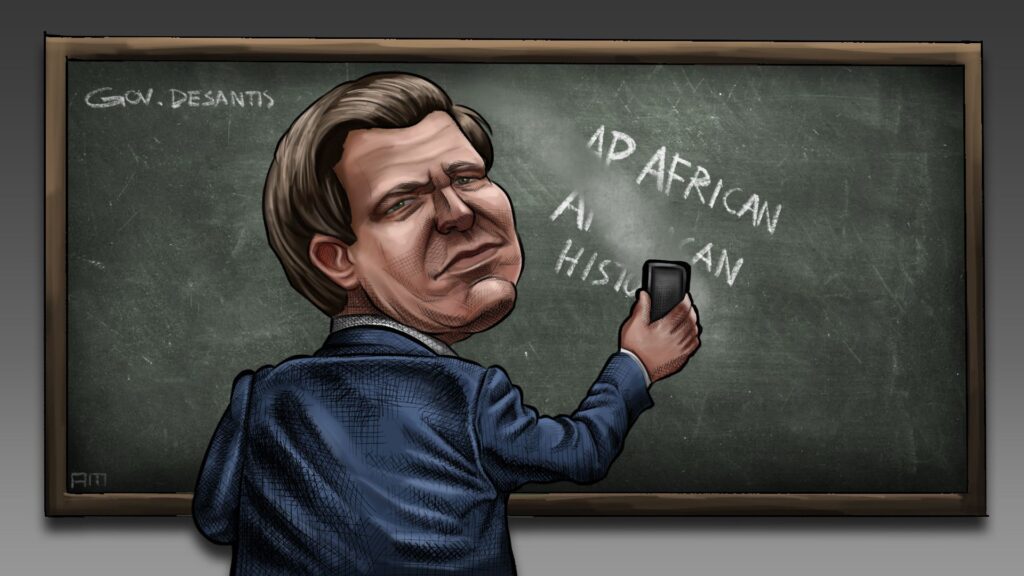Florida’s Rejection Of AP African American Studies Course Embodies White Fragility
The unjust murder of George Floyd was a wake-up call for the nation three years ago.
Since then, millions of Americans have raised awareness of social justice issues. That spotlight has prompted the College Board—the organization responsible for administering tests used for college admission and placement—to create a course promoting Black history.
Advanced Placement African American Studies was expected to delve into the historical oppression Black people have faced in the United States and the recent Black Lives Matter movement.
However, in January, Florida Governor Ron DeSantis influenced the Florida Department of Education to stop the course from happening, arguing that it indoctrinates students with a “political agenda.”
The College Board eventually modified the course, gutting it of the substance it was meant to have, providing a more streamlined and weaker subject matter curriculum.
Far-right Floridians believe the outcome is “protecting our youth” from corruption, when in reality, it’s another example of white fragility barricading students from learning about Black history beyond slavery and Jim Crow.
While some say African-American history is just American History, many fail to see the continuous attempts to erase Black history.
An example of this is recent legislation sponsored by DeSantis that forbids schools from making white people feel “uncomfortable” when teaching America’s racist past.
History should not be distorted to protect those who feel uncomfortable by it.
As activist and teacher Jacqui Lewis said in a tweet, “if Black kids are old enough to experience racism, white kids are old enough to read about it.”
While people like DeSantis sugarcoat the teaching of Black history in our schools, millions of African-Americans continue to face institutionalized racism. It’s unfair to allow history to be censored to fit an ignorant narrative of the world.
Critical Race Theory is a term coined by civil rights activists and scholars to explain how the inherent racist attitudes of Western societies are reflected in legal and social institutions that favor white people.
Since its inception, the term has divided the nation.
In part, the mention of the term in the AP African American studies course was used to push for its ban, even though the course did not teach CRT because it considered the concept too advanced for high school students.
Once again, lawmakers with no background in African-American history are making decisions overruling the work of scholars who have devoted their lives to studying race theories.
Other topics in the course, like modern activism and queer theory, have been criticized by far-right advocates who say the inclusion of said subjects makes no sense.
Perhaps they don’t know Marsha P. Johnson, a prominent African-American activist in the gay rights movement or that Black Lives Matter exists because our criminal justice system continues to kill and sentence Black people more than any other race.
Their blatant ignorance of the importance of spotlighting key African-American figures proves why we need to educate our youth on these issues in the first place.
Black history is not always comfortable to learn. However, the response to uncomfortable history should not be to censor it.
In a world where everything from a woman’s autonomy to concepts like critical race theory are politicized, you realize society was not built for the betterment of minorities.
That is why the rejection of AP African American studies in Florida schools should be a wake-up call.

